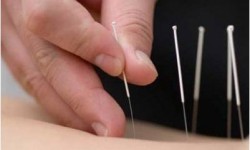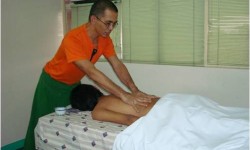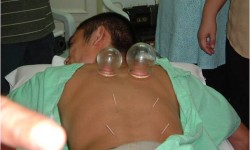Center for Complementary and Integrative Medicine
The Center for Complementary and Integrative Medicine (CCIM) envisions a health care delivery system that incorporates and allows the use of safe, affordable and appropriate indigenous / complementary forms of healing at par with western medicine. It believes in the roles of traditional health practitioners as the original partners of the government in addressing the issue of sustainable health development. Its task is to provide the training and research of complementary and alternative medicine. Its goals are to preserve and validate the cultural heritage found in indigenous medicine and the integration of indigenous/complementary health practices into the primary health care system of the country.
Specifically, its objectives are:
- To conduct research on different aspects of indigenous health practices;
- To promote viable indigenous/complementary forms of healing practices that are safe, efficacious, and appropriate in the primary health care setting;
- To harness resources for training on indigenous health practices and production of educational materials for public information.
As a clearinghouse for information on indigenous and complementary medicine, the Center collates literature to provide the basis for indications of complementary therapies. This will help guide patients, complementary medicine practitioners as well as mainstream doctors in determining the suitability of modalities for specific medical conditions. Presently, the Center is focusing on acupuncture, yoga, massage and nutrition under its three units, namely the:
- Traditional Indigenous Medicine Unit;
- Mind/Body Intervention Unit; and
- Alternative Nutrition Unit.
The Traditional Indigenous Medicine Unit looks into the traditional health practices of different cultures and indigenous peoples, including our own ‘hilots’ and healers. Understanding regional differences in health care can help improve the delivery of health services particularly to groups of people that are greatly influenced by local practices and beliefs. As part of its services, the unit offers acupuncture for various conditions such as pain, stiff joints, menstrual problems, infertility, anxiety and stress. Other modalities offered are massage, moxibustion, ventosa, indigenous nutrition, and traditional Chinese nutrition.
The Mind/Body Intervention Unit investigates the mind-body connection in modalities such as yoga. Yoga and other mindfulness practices are being taught to students and staff as regular classes or in workshops as part of its advocacy for wellness and the application of these practices in daily life.
In the future, the Center will offer nutrition counseling through its Alternative Nutrition Unit.
The Center maintains an herbal garden which serves as a showcase of medicinal plants and a source of plant materials used by medical residents and students of the different colleges. The plants are used in laboratory sessions as well as in experiments for their thesis and research papers. It is also exploring the use of gardening and landscaped areas as therapeutic tools for patients.
| Summary of CCIM Clinic Services: |
|



